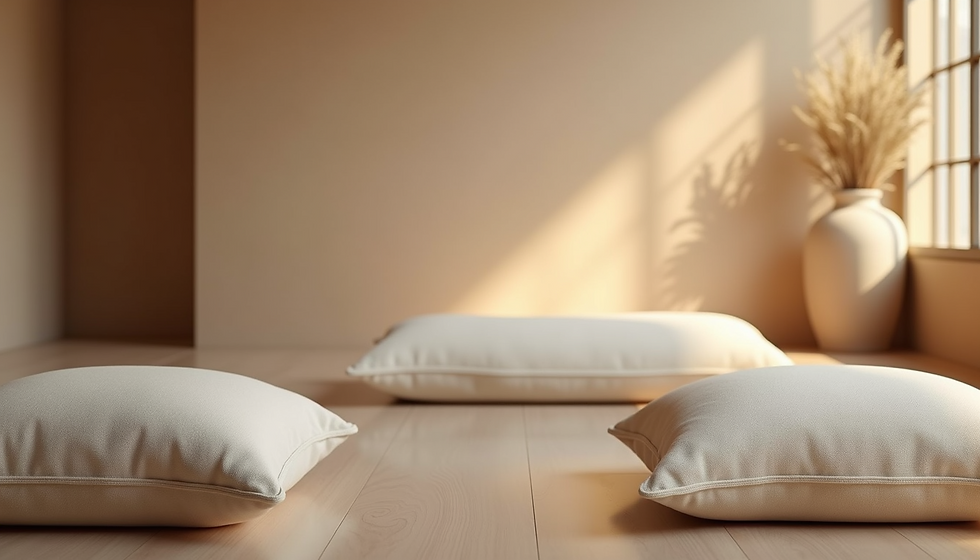Exploring the Impact of Sleep Technology on Health and Quality of Rest
- Dan Masery

- Aug 14, 2025
- 3 min read
Sleep is gaining recognition as a cornerstone of good health. Millions of people are turning to sleep technology to improve the quality of their rest. These gadgets and apps promise a better night's sleep, enhancing overall well-being. In this blog post, we explore the different types of sleep technology, their health impacts, and how they can help you achieve better sleep.
The Importance of Sleep
Sleep is crucial for your physical and mental well-being. It affects many bodily functions, including your immune system, cognitive performance, and emotional stability. Lack of sleep can lead to serious health problems. Research shows that people who regularly get less than seven hours of sleep are 30% more likely to develop obesity and are at a higher risk for diabetes and cardiovascular diseases.
In recent years, more people have understood sleep's significance, leading many to seek technology that addresses common sleep issues. The rise in sleep-focused products reflects a desire for better sleep hygiene and overall health.
Types of Sleep Technology
The variety of sleep technology on the market is impressive, with options tailored to meet various needs. Here are some prominent types:
Sleep Trackers
Sleep trackers come in various forms, from wearable devices to smartphone apps. They monitor sleep patterns, duration, and quality, giving users valuable insights. For example, a popular option like the Fitbit can reveal sleep stages and provide sleep score ratings based on patterns. Many users report improved sleep habits after identifying trends in their data.

Smart Mattresses
Smart mattresses offer unique features like adjustable firmness and temperature controls, all based on user preferences. Some models, like the Sleep Number bed, come with built-in sensors that track sleep quality and provide personalized feedback via a connected app. This technology allows users to fine-tune their sleeping environment for maximum comfort, which can dramatically improve sleep quality.
White Noise Machines
White noise machines produce calming sounds to mask disruptive noises, helping users fall and stay asleep. For those living in noisy areas, these machines can be game-changers. Models like the Marpac Dohm produce various sound options, from white noise to gentle rain, allowing users to create a soothing atmosphere tailored to their preferences.
The Benefits of Sleep Technology
Investing in sleep technology can lead to numerous benefits, especially for those wanting to enhance their sleep quality. Here are some key advantages:
Enhanced Sleep Quality
Sleep technology provides insights that help users understand their sleep patterns. Studies show that individuals who use sleep trackers improve their sleep quality by an average of 20%. By identifying factors that hinder sleep, users can make informed changes, leading to more restorative rest.
Improved Health Outcomes
Quality sleep strongly correlates with overall health improvements. Better sleep can lower stress levels, enhance mood, and boost cognitive performance. According to the National Sleep Foundation, individuals who sleep well have a 50% lower risk of developing chronic health conditions compared to those who sleep poorly.
Personalized Sleep Solutions
With a wide array of technologies available, individuals can select solutions that suit their specific needs. Whether opting for a sleep tracker to monitor patterns or a smart mattress for tailored comfort, these products cater to diverse preferences, significantly enhancing the sleep experience.
Challenges and Considerations
While sleep technology offers significant benefits, it is essential to consider potential downsides.
Over-Reliance on Technology
One challenge is the risk of becoming too dependent on gadgets for sleep. While these tools can provide insights, they should complement rather than replace good sleep hygiene practices like maintaining a regular sleep schedule and creating a comfortable sleep environment.
Data Privacy Concerns
Another consideration is the privacy of personal data. Many sleep trackers collect sensitive information, which can raise privacy concerns. Users must be aware of how their data is used and stored. Choosing reputable brands that prioritize data security is essential.
Cost of Sleep Technology
The price of sleep technology can vary significantly, with high-end smart mattresses costing over $1,000, while apps can be as low as $5. While some individuals may find the investment worthwhile, others may need to consider their budget and explore more affordable options that still offer essential features.
Final Thoughts on Sleep and Technology
As awareness of sleep's critical role in health grows, so does the market for sleep technology. From trackers to smart mattresses, these innovative tools present promising solutions for those looking to improve their sleep quality.
Understanding what options are available empowers individuals to make informed choices. By integrating sleep technology into their routines, they can pave the way for a healthier lifestyle and restful nights.

In a fast-paced world where sleep is often undervalued, embracing sleep technology can be transformative. The path to a better sleep experience starts with making informed choices and understanding how these tools can fit into your life.








Comments